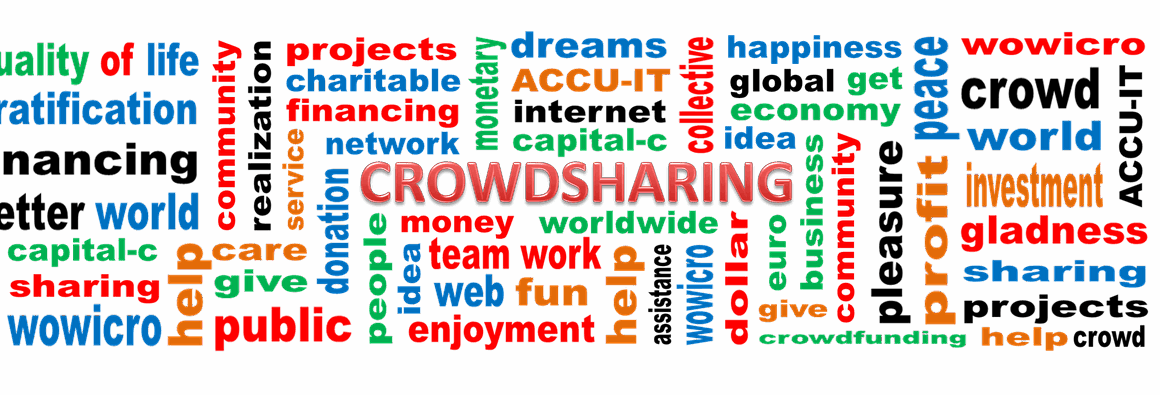Key Differences in Crowdfunding Rules Across African Regions
Crowdfunding is gaining traction as an alternative funding method in Africa, fostering innovation and entrepreneurial growth. However, the rules governing crowdfunding vary significantly across the continent. Each African country has tailored its regulatory framework to address unique economic and cultural contexts. Countries such as Nigeria and South Africa have developed comprehensive regulations, while others are still in preliminary stages. This disparity creates both opportunities and challenges for investors and entrepreneurs seeking to utilize crowdfunding platforms. Regulatory clarity can enhance trust and support for this funding method, driving engagement from potential investors. Conversely, ambiguous regulations may dissuade both funders and startups from participating. Some jurisdictions offer incentives to startups, while others impose stringent requirements. Understanding these local regulations is crucial for any stakeholder in the crowdfunding ecosystem. Additionally, peer-to-peer platforms and donation-based crowdfunding have differing legal implications, affecting access to resources. As the African crowdfunding landscape evolves, staying informed about regional variations becomes increasingly important for entrepreneurs aiming to thrive in this dynamic environment. It is not just about raising funds; it is about navigating regulatory waters deftly for ultimate success.
Regulatory Frameworks in East African Nations
In East Africa, regulations governing crowdfunding differ notably, with countries like Kenya leading the pack. Kenya’s Capital Markets Authority has established guidelines that facilitate equity crowdfunding while ensuring investor protection. This regulatory framework provides a structured approach for startups aiming to raise capital through this innovative financing method. Other countries in the region, such as Uganda and Tanzania, are still formulating their regulations. Tanzania, for instance, is in its early stages of drafting rules that will likely emerge in the next few years. This creates a somewhat uneven playing field, as businesses in Kenya enjoy a more supportive environment for crowdfunding. Moreover, in Ethiopia, crowdfunding is relatively new, leading to a cautious approach from regulators who favor traditional financing methods. East African entrepreneurs need to stay informed about these developments. They must also understand how these regulations impact their ability to access capital. As investor interests grow, regulators may adapt their frameworks to foster more inclusive environments. This ongoing evolution underscores the importance of embracing the regulatory landscape to optimize crowdfunding opportunities in East Africa.
Southern Africa presents a diverse picture regarding crowdfunding regulations, with South Africa standing out as a frontrunner in creating a supportive environment. The Financial Sector Conduct Authority has robust guidelines that promote equity crowdfunding while ensuring the protection of investors. These regulations provide a clear framework that has nurtured a burgeoning startup ecosystem. In contrast, Zimbabwe has yet to formulate dedicated crowdfunding regulations, leaving a gap that entrepreneurs find challenging. This difference affects investor confidence and startup growth, as potential funders may hesitate to engage in an uncertain legal environment. Other countries, like Namibia and Botswana, are actively exploring crowdfunding regulations but are still in the consultation phase, aiming to learn from South Africa’s experience. This dynamic has sparked conversations about potential frameworks tailored to local needs. Thus, aspiring funders and startups in Southern Africa must remain proactive and informed. Tapping into regional networks and engaging in discussions with regulatory bodies can help shape a more favorable crowdfunding climate, encouraging innovation and fostering a deeper sense of community engagement among stakeholders across the region.
West African Crowdfunding Challenges
In West Africa, crowdfunding regulations encounter unique challenges driven by varying levels of financial literacy and infrastructure. Nigeria is at the forefront, developing a comprehensive regulatory framework that promotes not only equity crowdfunding but also debt and rewards crowdfunding. The Securities and Exchange Commission has laid down guidelines intended to engender investor trust and bolster the crowdfunding ecosystem. Conversely, in countries like Ghana, regulations remain unclear, which creates barriers to entry for entrepreneurs and investors alike. Lack of regulatory clarity generates skepticism, affecting participation rates. Furthermore, many other countries in West Africa still see crowdfunding as a nascent concept, often leaning towards traditional funding methods. This contrast in regulatory environments impacts how businesses approach fundraising strategies. In some countries, innovative platforms are emerging, but they operate within gray areas legally. Improving the regulatory landscape requires concerted efforts from both governments and local communities. Emphasizing transparency and accountability can foster a welcoming environment. Encouraging governmental support and stakeholder collaboration will be essential to nurturing robust crowdfunding practices in West Africa.
North Africa represents a complex landscape of crowdfunding regulations, where countries like Egypt have taken significant steps in shaping their legal frameworks. The Financial Regulatory Authority of Egypt has initiated regulatory guidelines to promote crowdfunding, particularly in the real estate sector. However, challenges persist, such as bureaucratic red tape and a lack of awareness among potential users. Tunisia, while also recognizing the potential of crowdfunding, has yet to solidify its regulatory policies, leaving entrepreneurs with limited operational guidance. Consequently, startup founders often have concerns about compliance and legal responsibilities when pursuing crowdfunding avenues. Algeria and Morocco are still evaluating the implications of crowdfunding, exploring how it fits into their broader economic strategies. The difference in regulatory maturity between countries can influence regional collaboration as well. Networking opportunities among startups are important, bridging knowledge gaps between more advanced markets and those still developing. As the North African crowdfunding scene continues to evolve, engaging with stakeholders to build a clearer regulatory environment will be vital. This engagement will likely unlock the true potential of crowdfunding as a sustainable and inclusive funding method in the region.
Impacts of Global Trends on African Regulations
Global trends in crowdfunding are impacting African regulatory frameworks markedly. Increased interest in alternative funding, alongside technological advancements, has compelled regulators to reconsider existing rules. Crowdfunding platforms worldwide are becoming more innovative, with a shift towards equity crowdfunding gaining momentum. African regulators are increasingly taking note of these shifts, evaluating how to adapt their regulations to attract international investment and enhance local market stability. Countries are learning from global best practices, tailoring them to fit their unique contexts. For instance, integration of blockchain technology is being observed in regions like Southern Africa, promoting transparency and security in transactions. However, the challenge remains in balancing innovation and investor protection. Africa’s diversity necessitates flexible regulatory approaches that can accommodate different economic realities. Furthermore, as new platforms emerge, the risk of fraud and unethical practices grows, raising the need for stringent vetting procedures. Collaborative dialogues amongst stakeholders, including entrepreneurs, investors, and regulatory bodies, present an opportunity to create a cohesive regulatory environment. This engagement will ensure crowdfunding’s growth while safeguarding the interests of all parties involved, fostering sustainable economic development across the continent.
Looking ahead, the future of crowdfunding regulations in Africa is poised for significant transformation. Continuous dialogue among stakeholders will be essential in shaping new rules and frameworks that foster innovation. Regulators are increasingly recognizing the necessity of creating environments conducive to startup growth. As more countries embark on creating structured crowdfunding regulations, the potential for cross-border investment increases. While challenges remain, particularly around enforcement and harmonization, the prospects for improved frameworks hold promise for entrepreneurs. Enhanced market education and awareness initiatives will play a critical role in this transformation. Furthermore, the integration of digital tools and platforms has made it easier for entrepreneurs to explore crowdfunding options. Technology can streamline the regulatory process, providing more clarity for participants. The rise of social media influencers and online communities is also driving interest in crowdfunding. These trends suggest a shift towards a more vibrant crowdfunding landscape across Africa. For investors, this translates into diverse opportunities, while startups may find more accessible avenues for financing. Ultimately, a proactive approach from all actors in the crowdfunding space will determine the trajectory of this funding mechanism, making it a key player in Africa’s economic future.
Ultimately, understanding the regulatory landscape will be crucial for those wishing to navigate the complex world of crowdfunding in Africa. Knowing where and how to engage can mean the difference between success and failure for entrepreneurs seeking funds. While some countries are more advanced than others, the collective progress in developing better frameworks can enhance investor interest and trust. It is essential for entrepreneurs to keep abreast of changes in regulations, as these can directly influence their operational capabilities. The collaborative spirit among nations, borrowing best practices, will significantly improve the state of crowdfunding across the continent. This synergy may lead to fostering regional partnerships that transcend borders, enhancing innovation. As more stakeholders engage in conversations around best practices, the overall ecosystem will benefit from broader perspectives. Therefore, embracing the evolving nature of crowdfunding regulations will pave the way for a more inclusive and sustainable funding environment. A united push towards better regulatory frameworks is necessary to realize crowdfunding’s full potential in Africa. By championing transparency, adaptability, and support, the continent can harness crowdfunding effectively as a catalyst for economic growth.








